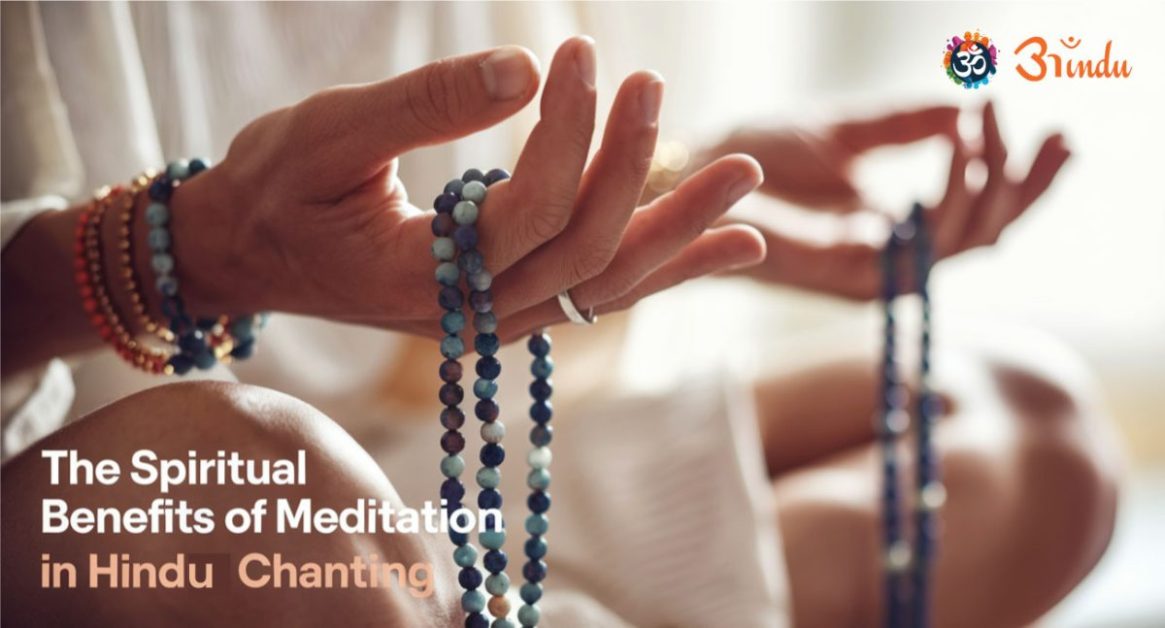
In the hustle and bustle of modern life, we often find ourselves seeking solace, a moment of peace amidst the chaos. For centuries, Hinduism has offered a powerful tool for achieving this inner tranquility: meditation. More than just a relaxation technique, meditation within the Hindu tradition is a profound spiritual practice, a journey inward that can lead to profound transformation. It’s a pathway to self-discovery, a connection to the divine, and a key to unlocking the spiritual benefits that lie dormant within each of us. This blog explores the rich tradition of meditation in Hinduism, delving into its various forms, its profound benefits, and how you can integrate this practice into your life.
Explore Blog Content
ToggleThe Roots of Meditation in Hinduism
Meditation, or dhyana as it’s often called, is an integral part of Hindu philosophy and practice. Its roots can be traced back to ancient scriptures like the Vedas and the Upanishads, which emphasize the importance of self-realization and union with the divine. The practice of meditation is further elaborated upon in texts like the Bhagavad Gita and the Yoga Sutras of Patanjali, which provide detailed guidance on various meditative techniques and their benefits. These ancient texts lay the foundation for the diverse range of meditative practices found within Hinduism today.
Understanding the Concept of Dhyana
Dhyana, often translated as meditation, goes beyond simple relaxation. It’s a focused and sustained state of awareness, a deliberate effort to quiet the mind and turn one’s attention inward. It’s a process of training the mind to become still and focused, allowing us to observe our thoughts and emotions without judgment. This stillness allows us to connect with our true selves, the atman, and ultimately realize its oneness with Brahman, the ultimate reality.
"Meditation is the dissolution of illusory boundaries of the self."Amit Ray
Different Types of Meditation in Hinduism
Hinduism encompasses a wide variety of meditation techniques, each with its unique approach and focus. Some common types include:
- Mantra Meditation: This involves the repetition of a sacred sound or word (mantra) to focus the mind and connect with the divine. The rhythmic chanting of a mantra creates vibrations that are believed to have a purifying effect on the mind and body.
- Yoga Meditation: Often incorporating physical postures (asanas) and breath control (pranayama), yoga meditation prepares the body and mind for deeper meditative states. It emphasizes the connection between the physical and spiritual aspects of our being.
- Vipassana Meditation: While originating in Buddhism, Vipassana, meaning “to see things as they really are,” is also practiced by some Hindus. It focuses on developing mindfulness and observing the impermanent nature of thoughts, feelings, and sensations.
- Transcendental Meditation (TM): A specific form of mantra meditation, TM involves the use of a personalized mantra and is practiced for a specific duration each day.
- Guided Meditation: This involves listening to a teacher or recording that guides you through a visualization or meditation process.
The Spiritual Benefits of Meditation
The benefits of meditation extend far beyond mere relaxation. Regular practice can lead to profound spiritual growth and transformation. Some key spiritual benefits include:
- Self-Realization: Meditation allows us to delve deep within ourselves, to understand our true nature, our strengths and weaknesses, and our connection to the divine. It’s a journey of self-discovery that leads to greater self-awareness and acceptance.
- Connection to the Divine: Through meditation, we can transcend the limitations of the ego and experience a direct connection with the divine, however we perceive it. This connection can bring a sense of peace, joy, and purpose.
- Inner Peace and Harmony: By quieting the mind, meditation helps us to reduce stress, anxiety, and negative thoughts. It cultivates a sense of inner peace and harmony, allowing us to navigate the challenges of life with greater equanimity.
- Spiritual Awakening: For some, meditation can lead to profound spiritual awakenings, a realization of the interconnectedness of all things and the ultimate unity of the individual self with the divine.
- Enhanced Intuition: As the mind becomes calmer and more focused, our intuition can become sharper. Meditation can help us to access our inner wisdom and make decisions with greater clarity.
- Improved Concentration: Regular meditation strengthens our ability to focus and concentrate, which can be beneficial in all aspects of our lives, from work and studies to relationships and personal growth.
- Emotional Regulation: By observing our thoughts and emotions without judgment, meditation helps us to develop greater emotional awareness and regulation. We become less reactive and more able to respond to situations with calmness and clarity.
- Reduced Ego: The ego, the sense of separate self, can be a source of suffering. Meditation helps to diminish the ego, allowing us to experience a greater sense of oneness and interconnectedness.
"The mind is everything. What you think, you become."Buddha
Integrating Meditation into Your Life
Starting a meditation practice can seem daunting, but it doesn’t have to be. Here are some tips to help you get started:
- Start small: Begin with just a few minutes of meditation each day and gradually increase the duration as you become more comfortable.
- Find a quiet space: Choose a place where you can sit or lie down undisturbed.
- Set a regular time: Try to meditate at the same time each day to establish a routine.
- Focus on your breath: If your mind wanders, gently bring your attention back to your breath.
- Be patient: It takes time and practice to develop a strong meditation practice. Don’t get discouraged if your mind wanders. Just gently redirect your attention back to your chosen focus.
The Importance of a Guru
In the Hindu tradition, a guru, or spiritual teacher, plays an important role in guiding students on their spiritual journey. A guru can provide personalized instruction in meditation techniques and offer support and encouragement. While it’s possible to learn meditation on your own, working with a guru can deepen your practice and accelerate your spiritual growth.
Meditation and Modern Life
In today’s fast-paced and stressful world, the benefits of meditation are more relevant than ever. It offers a refuge from the chaos of daily life, a way to reconnect with our inner selves and find peace amidst the storm. Whether you are seeking spiritual awakening or simply looking for a way to reduce stress and improve your well-being, meditation can be a powerful tool for transformation.
Summary
Meditation is a core practice in Hinduism, offering a path to self-discovery, connection with the divine, and inner peace. Through various techniques like mantra recitation, yoga meditation, and mindfulness practices, individuals can cultivate a deeper understanding of themselves and their place in the universe. Regular meditation can lead to significant spiritual, mental, and even physical benefits, making it a valuable tool for anyone seeking a more balanced and fulfilling life.
FAQs
- What is the purpose of meditation in Hinduism?
The primary purpose is self-realization, connecting with the divine within and achieving liberation (moksha). - How often should I meditate?
Regular practice is key. Even a few minutes daily is beneficial, gradually increasing duration as comfortable. - What is a mantra?
A sacred sound or word repeated during meditation to focus the mind and connect with the divine. - Can I meditate lying down?
While sitting is traditional, lying down is acceptable, especially for beginners or if you have physical limitations. - My mind wanders a lot. Is that normal?
Yes, it’s normal. Gently redirect your attention back to your breath or mantra when this happens. - Do I need a guru to learn meditation?
While helpful, it’s not always necessary. Many resources are available for self-learning. - What are the different types of meditation in Hinduism?
Many types exist, including Mantra, Yoga, Vipassana, Transcendental Meditation, and Guided Meditation. - What are the physical benefits of meditation?
Besides spiritual benefits, meditation can reduce stress, lower blood pressure, and improve sleep.







